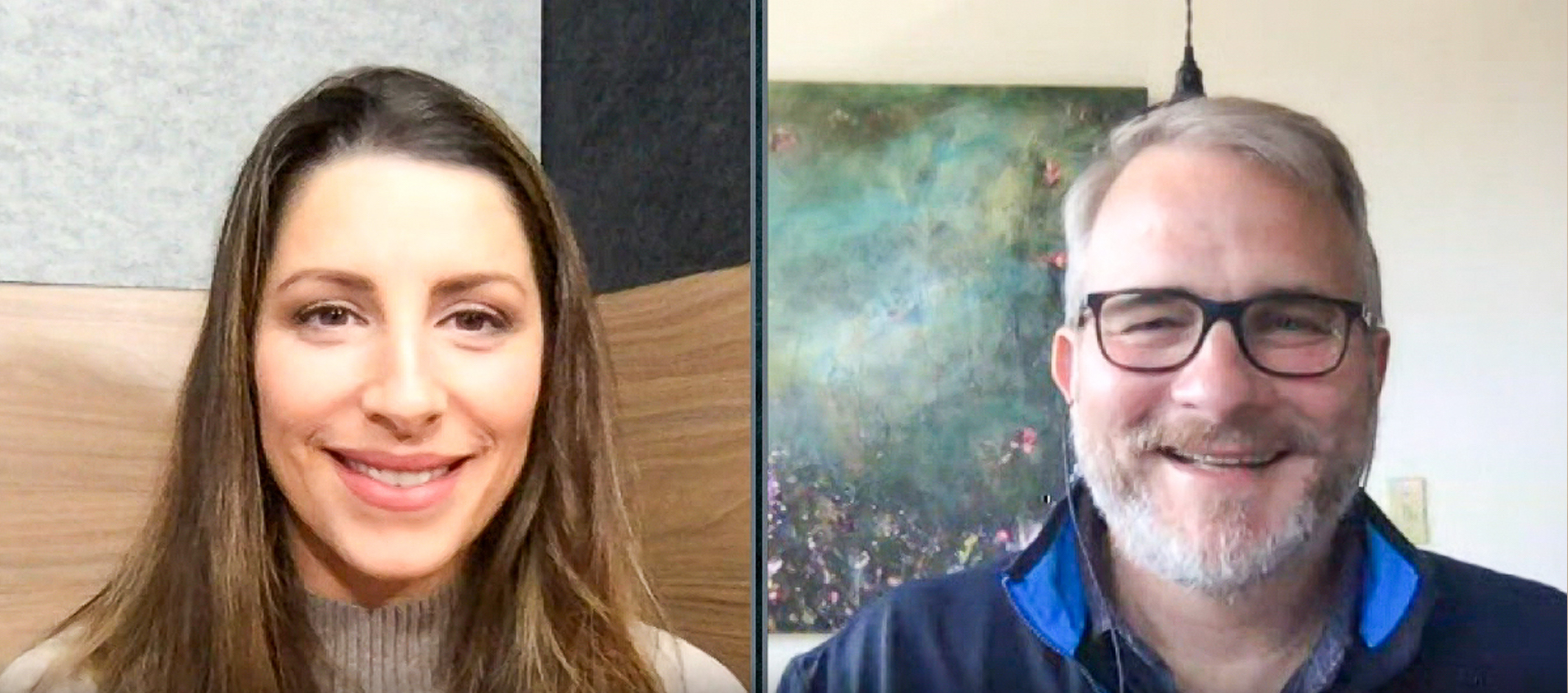 POLICY
POLICY
 POLICY
POLICY
 POLICY
POLICY
Social interaction has gone digital. From zoom meetings to conventions, the world has turned to technology to enable communication from the isolation of home. Big tech conferences, such as DockerCon 2020, are no exception.
Except they are.
Software developers have been productive working remotely for years. The virus has had little disruption for an industry used to running big projects with large teams whose members are scattered across multiple time zones — which means they have an advantage when it comes to adapting to travel restrictions imposed by the COVID-19 virus.
“Innovation doesn’t happen within an office from nine to five in whatever time zone you’re in,” said Jenny Burcio (pictured, left), community, advocacy and developer relations at Docker Inc. “If you look at what open source and what engineers have done … we’re not going through a huge change, even within Docker or in tech, of having to work from home.”
Burcio and John Kreisa (right), senior vice president of marketing at Docker, joined John Furrier, host of theCUBE, SiliconANGLE’s mobile livestreaming studio, in a digital CUBEConversation recorded at theCUBE’s studio in Palo Alto, California. They discussed the rapid evolution of digital interactions and how Docker is reimagining DockerCon 2020 as a virtual event, which will take place on May 28, with all the interaction of the original.
In the past few months, cloud-native container platform Docker has been going through a restructuring. It sold off its enterprise-focused side and regrouped around its million-plus member developer community.
“We’ve been working very diligently around refocusing Docker on developer tooling, developer chains, and really developer productivity, individuals and teams,” Kreisa said.
As would be expected, these changes have revitalized the community. Normally, this would have been celebrated by a large get together at DockerCon. But due to the coronavirus, the physical event has been cancelled and a virtual event scheduled in its place.
Streaming keynote speeches is a basic stop-gap solution for a digital event. But it doesn’t allow the in-person interaction that makes attending conferences so valuable.
“You’re walking down the hall, you see somebody, you’ve been wanting to talk to them. You have a quick five, or 10, or 20-minute conversation that allows you to have a really good, rich exchange,” Kreisa said.
These type of “hallway experiences” are at the heart at every event. And replicating them digitally is a challenge Docker is eager to match.
The “Captains on Deck” live Q&A sessions scheduled for DockerCon 2020 will allow attendees to hang out with Docker experts. Making interaction a sure thing instead of a chance encounter.
Likewise, the presentation process during the conference will be much more interactive than a regular livestream. “We’re going to pre-record talks and have the speaker there live to actually chat with anyone in the audience,” Burcio said.
This gives audience members the ability to interact by asking and receiving answers from the speaker while the speech is in progress. “So, you’ll have, actually, a much greater opportunity to talk to that expert via this virtual event than you would in person, listening to that person speak.”
In a regular keynote it’s hard to ask the speaker a direct question, as attendees jostle for attention at the end. With digital interaction, conversations don’t have to be limited by time, as every attendee will have the opportunity to connect after the fact, Burcio explained. This is a plus for event marketers, who can follow up on discussions and share resources.
“By having it all happen virtually, you’re setting yourself up for success in that area,” she said.
Aside from sharing the setup for a virtual event, Docker’s remote experts have recommendations for those new to managing a remote workforce on a day-to day-basis.
Create a code of conduct and live by it, Burcio stated. “Make it very visible to whomever you’re working with, both internally at the company, and in open source, externally to anyone wanting to contribute to a project,” she said.
Documentation is also essential to create a collaborative and connected workforce, according to Burcio. “There’s been a real need to keep the written record of decisions and conversations, and make it out there and open,” she said.
In an example of this, Docker has released its roadmap on GitHub. “Now our entire community can jump on and vote for what they want to see or provide input and ideas on what we would do next,” Burcio said.
Lastly, be understanding: It’s not work-as-normal, and many employees are struggling with mental and financial pressure. “Give grace in this time,” Burcio advised. “We all know there’s stress much beyond what’s happening in our day-to-day work for all the community right now.”
Here’s the complete video interview, one of many CUBE Conversations from SiliconANGLE and theCUBE:
Support our mission to keep content open and free by engaging with theCUBE community. Join theCUBE’s Alumni Trust Network, where technology leaders connect, share intelligence and create opportunities.
Founded by tech visionaries John Furrier and Dave Vellante, SiliconANGLE Media has built a dynamic ecosystem of industry-leading digital media brands that reach 15+ million elite tech professionals. Our new proprietary theCUBE AI Video Cloud is breaking ground in audience interaction, leveraging theCUBEai.com neural network to help technology companies make data-driven decisions and stay at the forefront of industry conversations.